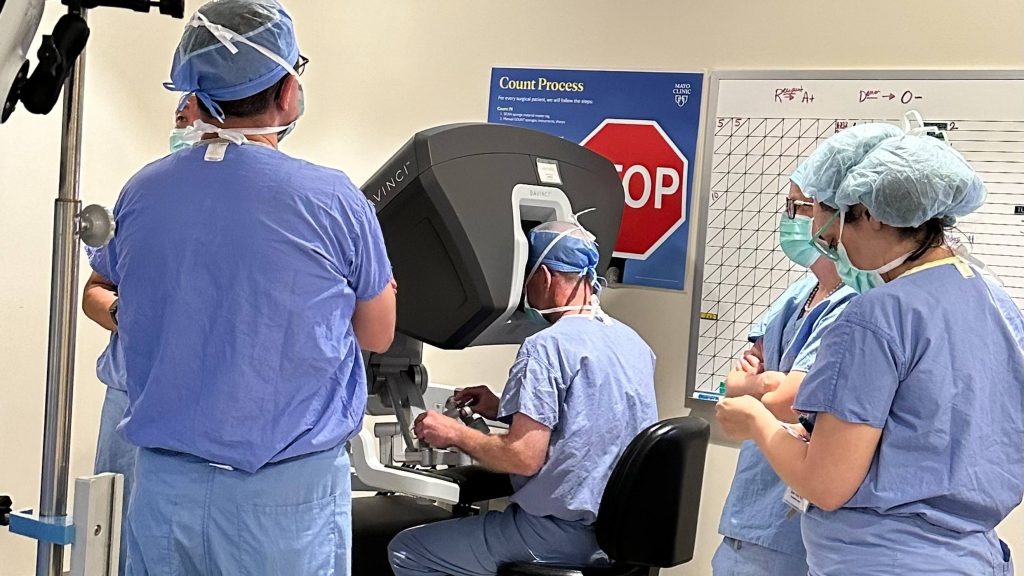-
Mayo Clinic surgeons perform first robotic-assisted kidney transplant in Minnesota

ROCHESTER, Minn. — Mayo Clinic surgeons successfully performed Minnesota's first robotic-assisted kidney transplant earlier this month. This minimally invasive procedure may be beneficial for patients with a higher body mass index and may reduce the risk of incisional complications, such as hernia or infection.
Mayo Clinic's first robotic-assisted kidney transplant was successfully performed on Oct. 4 on a woman in her 60s who received a kidney from her daughter.
“Mayo Clinic has been a leader in the field of kidney transplants for six decades. We are proud to continue that tradition by completing the first robotic-assisted kidney transplant in Minnesota," says Timucin Taner, M.D., Ph.D., division chair of Transplant Surgery at Mayo Clinic. Dr. Taner and Patrick Dean, M.D., performed the robotic-assisted surgery.
For patients with kidney failure, kidney transplant remains the best treatment available. Most kidney transplants are done via open surgery. The surgeon makes an incision 4- to 8-inches long on the right or left side of the lower abdomen to transplant the donated kidney. For a robotic-assisted kidney transplant, the surgeon makes a roughly 2-inch incision around the belly button and a smaller incision to insert the robotic instruments. The surgeon sits at a console that controls the surgical robot.
“A robotic-assisted kidney transplant requires a smaller incision. It lowers the risk that patients will experience complications, such as an infection or hernia. Patients may also have less discomfort and a speedier recovery, potentially meaning less time in the hospital after surgery," says Dr. Dean, surgical director of Mayo Clinic's Kidney Transplant Program in Minnesota.
Watch: Dr. Patrick Dean talks about robotic-assisted kidney transplant surgery
Watch: Patient talks about her experience
Journalists: Broadcast-quality soundbites with Dr. Patrick Dean and patient Pam Panning are available in the downloads at the end of the post.
For most patients, the traditional kidney surgery method remains the best option. It is safe and successful.
“Robotic-assisted kidney transplant will not replace open kidney transplantation entirely,” Dr. Taner says. “It will, however, offer another option for those who may benefit from an alternative incision site — especially those with higher body mass indexes, previous hernias or prior abdominal surgeries.”
Mayo Clinic is the largest integrated transplant center in the U.S. Mayo Clinic Transplant Center in Minnesota performed 311 kidney transplants in 2022 — more than any other transplant center in the state.
###
About Mayo Clinic
Mayo Clinic is a nonprofit organization committed to innovation in clinical practice, education and research, and providing compassion, expertise and answers to everyone who needs healing. Visit the Mayo Clinic News Network for additional Mayo Clinic news.
Media contact:
- Heather Carlson Kehren, Mayo Clinic Communications, newsbureau@mayo.edu







